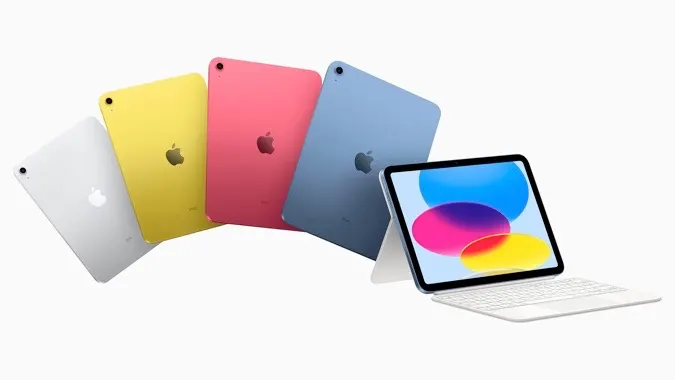The Morning After: Apple reveals redesigned iPad, M2-powered iPad Pro and new Apple TV 4K
There were rumors of an M2 iPad Pro, but they were just the start of Apple’s announcements yesterday. The company dropped a bunch of new hardware, but let's start with its most powerful new tablet. The iPad Pro ($799), powered by its M2 chip, offers up to 15 percent faster performance than the M1, according to Apple. It also gets WiFi 6E support and a new “hover” experience for Apple Pencil. With a second-gen Apple Pencil, the iPad Pro will detect the peripheral when it's up to 12mm away from the display. Hovering above the display, you’ll be able to preview any mark you want to make before you actually apply it. When you place the Apple Pencil near the Scribble app, text fields will expand automatically. The updated Pro arrives on October 26th.

Apple
The new entry-level iPad got a major redesign, including USB-C charging and a landscape camera. The new model borrows the thin bezel of higher-end models and embeds the fingerprint reader built into the sleep/wake button. No more home button here. It’s more expensive, however: The redesigned iPad starts at $449 for the 64GB WiFi model. It also launches on October 26th. Alongside these new models, after a slight delay, Apple has also revealed that iPadOS 16 lands on October 24th.
Rounding out the barrage of Apple announcements, there’s a new $129 Apple TV 4K model. It has an A15 chip, 64GB of storage and HDR10+ support, with a 128GB Apple TV 4K option adding gigabit Ethernet. Both new Apple TVs also support WiFi 6. We’ve got all the pre-order details here.
– Mat Smith
The Morning After isn’t just a newsletter – it’s also a daily podcast. Get our daily audio briefings, Monday through Friday, by subscribing right here.
The biggest stories you might have missed
The phone's display shrinks from 6.5 to 4 inches.
We've seen rollable phone concepts from companies like Oppo and TCL, and LG was even working on a commercial rollable smartphone until it quit making mobile devices last year. Now, Lenovo is showing off a laptop with a rollout display, while its mobile division, Motorola, has a roll-out smartphone — and they look like some of the more practical efforts yet. The phone starts out at a very pocketable 4 inches high, but with the click of a button, the OLED panel extends to a more normal, in 2022, 6.5 inches.
We’ve not seen a rollable laptop until now. The prototype starts with a typical landscape display and then rolls into a square, making it better for documents or vertical TikTok-style videos.
Continue reading.
So you'd better hurry up and boot your ex from your account.
The next phase of Netflix's months-long crackdown on password sharing – which itself follows the company's first quarterly subscriber loss in a decade – is soon upon us. The company announced during its quarterly earnings call on Tuesday that beginning in early 2023, it will charge customers an added monthly fee to people who share their login credentials. The news comes as Netflix attempts to return to growth after losing subscribers earlier in the year. With help from Monster: The Jeffrey Dahmer Story and the latest season of Stranger Things, the company was able to add more than 2.4 million subscribers in its third quarter. Netflix has not yet announced pricing, though if it follows the pilot program, it could work out to around $3 to $4 per month.
Continue reading.
It may be the quietest-riding Rolls yet.

Rolls Royce
The luxury British manufacturer has unveiled its first ground-up EV, the Spectre coupe. The “spiritual successor” to the Phantom looks much like its stately gas-powered counterparts but promises an even quieter and smoother ride. Although it’s still finalizing specifications, the company expects the all-wheel drive machine to make a 0-60MPH dash in 4.4 seconds and achieve an EPA range of 260 miles. Not particularly notable, but this isn’t about numbers. This is about luxury.
Continue reading.
A tribunal found the deal reduced competition.
The UK's Competition and Markets Authority (CMA) regulator has ordered Meta to sell Giphy after it lost its battle at the Competition Appeal Tribunal. The authority reviewed the decision in July after the tribunal sided with Meta on one issue (sharing sensitive third-party information). But it found the deal could still hurt competition by limiting rivals' access to Giphy’s library of GIFs, requiring unfavorable terms and reducing digital advertising choices. Meta bought Giphy in May 2020 at an unofficially estimated price of $400 million.
Continue reading.
All products recommended by Engadget are selected by our editorial team, independent of our parent company. Some of our stories include affiliate links. If you buy something through one of these links, we may earn an affiliate commission. All prices are correct at the time of publishing.

